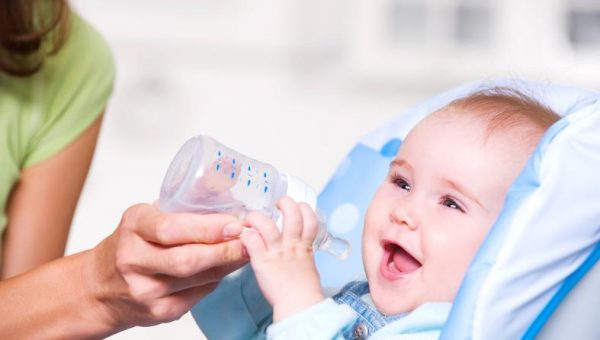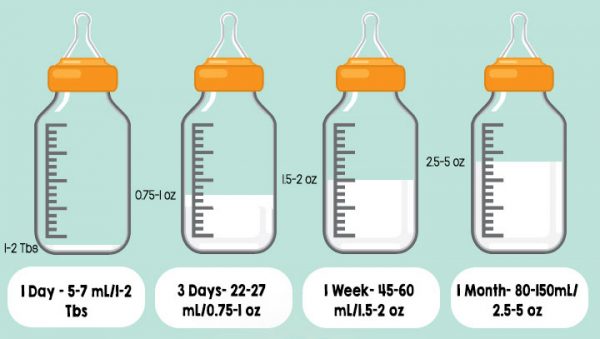How much breast milk does a newborn need?
Some new mothers begin to worry immediately after childbirth — the baby is already born, but there are no breast milk fountains! OMG! What will the baby eat? Won’t he remain hungry? What if there is not enough breast milk? Actually, situations, when a mother cannot produce enough milk to feed her newborn, are extremely rare.

Unfortunately, due to different myths and ads of infant formula, new mothers are often misled about the insufficient amount of their breast milk, so they begin to feed their newborns with formula. Often, it is not necessary. As a general rule, the more you breastfeed, the more milk you will have.
Sometimes, mothers don’t believe that colostrum (the thick yellow liquid oozing from the breast) is quite sufficient for the newborn nutrition during the first days and they begin to give formula. This is a huge mistake. The newborn’s stomach volume is really tiny. In 99% of cases, there is no need for complementary feeding with infant formula up to one month.
Many may have heard that a newborn’s stomach is the size of a golf ball, but it’s actually even smaller!
The gastric volume of the newborn baby is 5−7 ml. The research showed that the newborn baby’s stomach on the 1st day of life is not able to stretch to accommodate more food. The baby’s stomach walls are rigid, being the reason for spitting up the excess milk. Your colostrum is sufficient for first feedings!
The 3 days old baby has a stomach volume of 22−30 ml. Frequent feedings with small portions allow the milk to be well absorbed.
On the 7th day, the volume of the stomach is 45−60 ml. Frequent breastfeedings will provide your baby with the necessary nutrition. Step by step, your body will produce enough milk in accordance with the needs of your newborn.
In order to clearly imagine the volume of the stomach of your baby, you can use this picture.

Obviously, during the first days, newborns don’t need large volumes of food. But if you are still worried, learn how to increase lactation.
During the first days after birth, colostrum helps to improve the baby’s digestive system. Its protective properties are unique and it gives all the necessary elements for your tiny baby!
After 2−6 days, many mothers feel the «arrival» of breast milk, which might be accompanied by breast engorgement. In the worst case scenario, it might cause lactostasis, which has to be treated accordingly. Breastfeeding can be painful for the first couple of days. Frequent breastfeeding will help get rid of the discomfort. In the beginning, your body doesn’t know how much milk your baby needs, but you will gradually adjust your milk supply to the required quantity.




